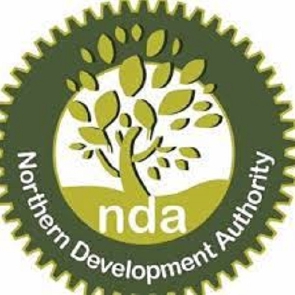The Coalition of Northern Ghana CSOs (CNGC) is calling on the Northern Development Authority (NDA) to prioritise climate change adaptation and mitigation activities in its ongoing process of developing a Medium-Term Development Plan (MTDP) for the Authority.
According to the Coalition, Northern Ghana is home to a very long dry season, bush burning, indiscriminate tree felling for charcoal production, and endless rosewood harvesting which have cumulatively deepened the area’s vulnerability to the growing impacts of climate change and exacerbating poverty and hunger.
The Chairman of the Steering Committee of the Coalition and Executive Director of Northern Patriots in Research and Advocacy, (NORPRA), Mr. Bismark Adongo Ayorogo, in a statement, noted that the economy of northern Ghana is agriculture–dependent and the impacts of climate change such as erratic rainfall pattern, floods, and high temperatures have already contributed to the high levels of food insecurity in the area.
Referencing the Ghana Statistical Service, (GSS, 2022), it stated that the regions of upper east, north-east, northern, savannah, and upper west have respectively recorded 73.7%, 65.6%, 41.5%, 58.8%, 61.8% levels of food insecurity.
The statement pointed out that a Climate Change –Responsive Planning and Budgeting by the NDA with strategic actions to promote climate-smart agriculture, Grass-for Charcoal technology, economic tree planting and growing, end bush burning, improve the quality of irrigational infrastructure dubbed, One Village, One Dam, increase investment on ground water resource management and promotion of farmer-managed natural regeneration (FMNR) practices will not only significantly contribute to the achievements of Ghana’s Nationally Determined Contribution (Ghana-NDCs) policy actions of
• Building resilience and promoting livelihood opportunities for the youth and women in climate-vulnerable Agriculture landscapes and food systems.
• Enhancing climate resilience of women and the vulnerable.
• Integrated water resources management.
• Promoting sustainable charcoal production, including youth and women entrepreneurs, but would also fast-track Ghana’s efforts made at achieving Sustainable Development Goal 13 by 2030.
The Coalition further stated that Northern Ghana was blessed with about 8 million hectares of agricultural land capable of producing to sufficiently feed 50 million people but observed sadly that climate change was a serious threat to this potential in the area.
The Coalition equally noted that the SADA Master Plan was a very comprehensive development blueprint with very strategic policy directions and actions to accelerate the socio-economic transformation of northern Ghana, it, therefore, urged the Board and Management of the NDA to consider incorporating that plan into its Medium Term Development Plan.
The statement asked the NDA to ensure effective citizen participation especially the vulnerable and marginalized as well as socially excluded in the process to help address the challenges facing them.
The Coalition which was formed in 2015 and christened Coalition of SADA Zone CSOs is into advocacy for increased public investment in northern Ghana in the areas of agriculture and climate change. It also works to promote peace and security in the area by engaging in community sensitization against violent extremism, radicalization, and terrorism.
Click to view details



Regional News of Wednesday, 9 November 2022
Source: Northern Patriots

















